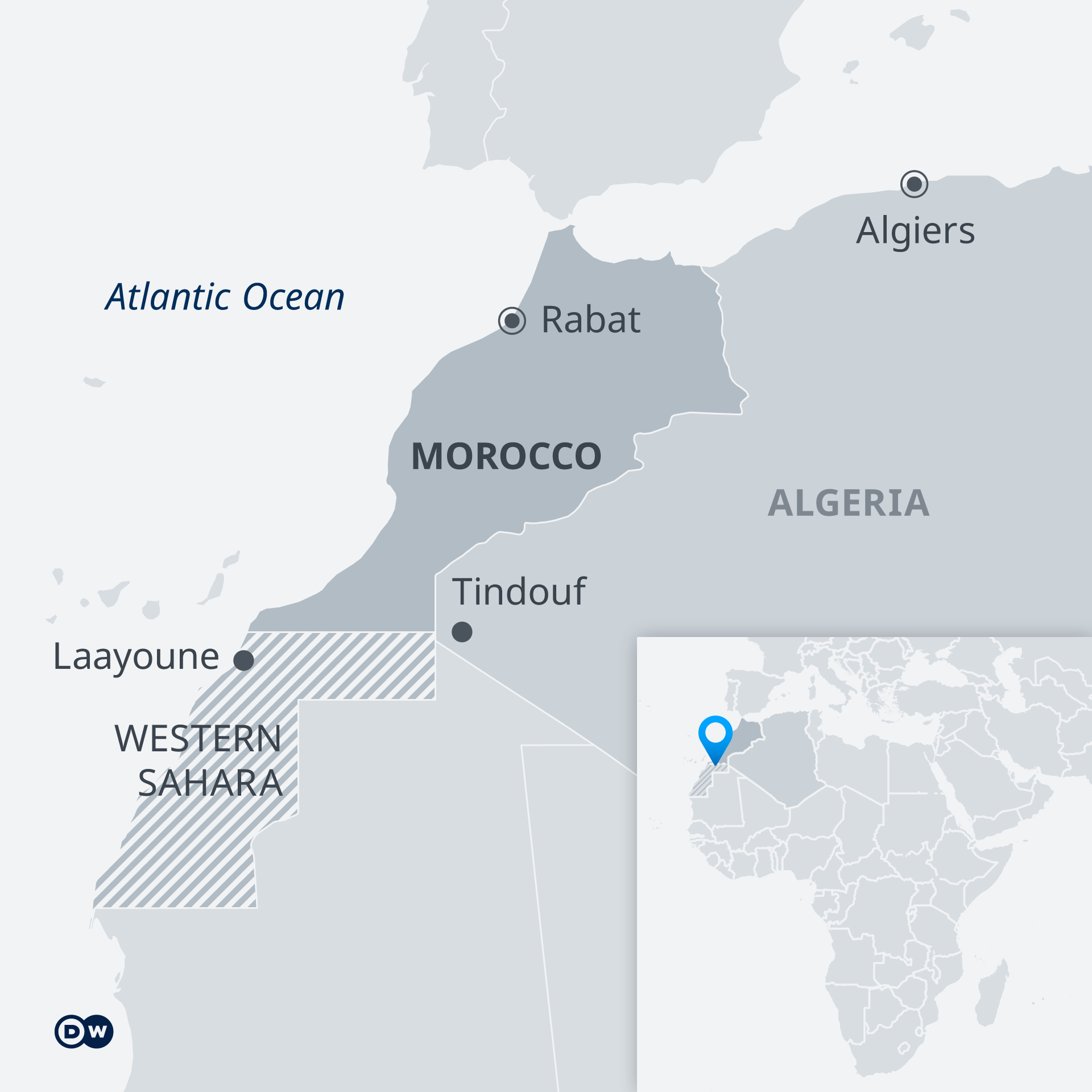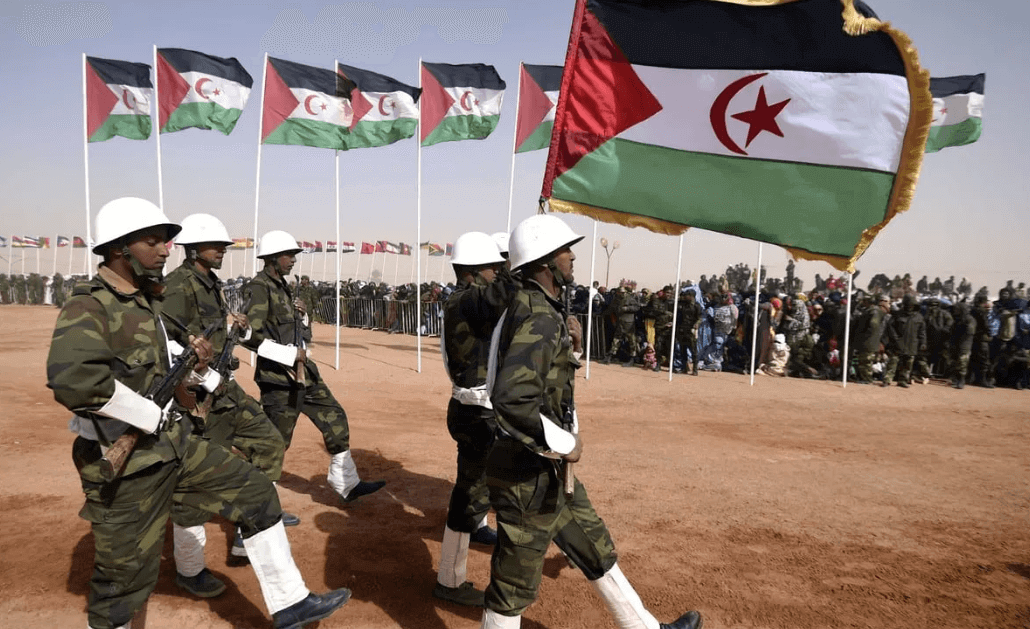The Polisario Front, which has been engaged in a decades-long battle with Morocco over Western Sahara, has severed ties with Spain for recognising Morocco’s autonomy plan for the disputed region.
The pro-independence Polisario said on Sunday that Spain’s decision to support Morocco gives Rabat the freedom “to annex, by force, the territories of Western Sahara and to seize the inalienable rights of the Sahrawi people to self-determination and independence.”
It added that its decision to cut ties with Spain will remain as long as the government of Prime Minister Pedro Sánchez “dissociates from the instrumentalization of the Sahrawi issue within the framework of appalling bargaining with the occupier.” The Polisario also demanded that Spain should “conform to the decisions of the international legality which recognises the Sahrawi people’s right to self-determination and respect of its internationally recognised borders.”
Last month, PM Sanchez recognised Morocco’s plan to offer limited sovereignty to Western Sahara. The proposal, which was made 15 years ago, would provide the region with a semi-autonomous status under the larger control of Rabat. The 2007 plan aims to transfer some political and judicial powers to the resident of Western Sahara, who are mostly ethnic Sahrawis.
Following Spain’s announcement, Foreign Minister José Manuel Albares said that the proposal was the “most serious, realistic and credible” plan to end the conflict. Furthermore, the Spanish government released a statement calling Sanchez’s announcement a “new stage” in Spain-Morocco ties.
Moreover, Sanchez visited Rabat last week and met with Moroccan King Mohammed VI, formally ending a years-long dispute over Spain’s refusal to recognise Morocco’s sovereignty over the disputed Western Sahara region.

Last year, Spain had covertly allowed Western Saharan Polisario Front (PF) leader Brahim Ghali, who leads an independence movement by the Sahrawi people, to receive treatment for COVID-19 at a hospital in northern Spain. In retaliation, Morocco purposely allowed thousands of migrants from sub-Saharan Africa to enter Ceuta, a Spanish enclave on the coast of Morocco, and also recalled its ambassador from Spain. The ambassador was reinstated on Sunday after the ten-month-long diplomatic spat, marking a clear shift in Spain’s Western Sahara policy.
While Spain’s move was hailed by Morocco, it was condemned by the Polisario and Algeria. Polisario leaders called the move a “betrayal” and a “grave mistake” by Spain and claimed that Spanish authorities had succumbed to “Moroccan blackmail and pressure.”
Algeria, which hosts the Polisario-led Western Sahara government-in-exile, the Sahrawi Arab Democratic Republic (SADR), recalled its ambassador to Madrid following the announcement and expressed shock at Spain’s “abrupt U-turn” on its neutral Western Sahara policy.
Algeria wants Morocco to hold an independence referendum and has provided the Polisario Front with arms, political support, and financial aid in its decades-long conflict with Morocco. In response, Morocco has backed the right to self-determination of Algeria’s Berber minority. These differences led to Algeria severing all diplomatic ties with Morocco last year, wherein it recalled its ambassador from Rabat.
The Western Sahara dispute’s roots can be traced all the way back to Spanish colonial rule. When Spain withdrew from the region in 1975, Morocco annexed virtually 80% of Western Sahara.
The Sahrawi people took the remaining area, whose national liberation movement is known as the Polisario Front. They seek to establish an independent SADR, which Morocco has refused to accept, leading to a 16-year war between the Polisario Front and Morocco between 1975 to 1991 and periodic bouts of violent confrontations.
For Morocco, the region represents a crucial economic foothold in terms of phosphate reserves, fisheries, and offshore oil. At the same time, the Guerguerat border crossing between the Western Sahara and Mauritania runs through a ‘buffer zone’ between Morocco and the SADR, demonstrating how the area also represents a crucial trade route to other African nations.
A United Nations (UN)-brokered ceasefire was established in 1991, with a path toward a referendum on the region’s future. However, this vote was never set up, leaving the concerns of both sides unaddressed.
However, Morocco has recently been gaining the support of a number of Western actors. In February, Germany, too, pledged to form a “new partnership”; both countries also re-deployed their diplomatic envoys to Berlin and Rabat, respectively. Like Spain, German Chancellor Olaf Scholz has also approved Morocco’s autonomy plan for the Western Sahara, marking a clear shift from the Merkel government. The change in Spain and Germany’s stance on the dispute has received support from the European Union.
Similarly, during her recent visit to Rabat, current United States Deputy Secretary of State Wendy Sherman said, “We continue to view Morocco’s autonomy plan as serious, credible and realistic.” Back in December 2020, now-former US President Donald Trump recognised Morocco’s sovereignty over the region in exchange for Morocco signing the Abraham Accords with Israel.

